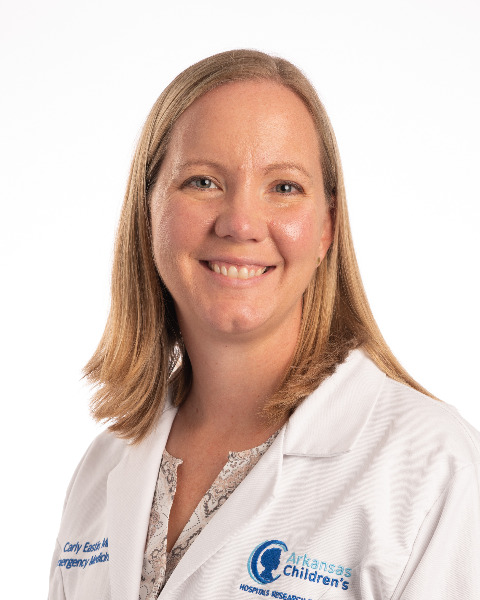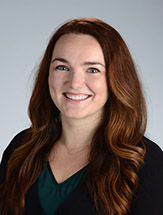How and Why to Improve Your Journal Club (Research Committee and the Evidenced-Based Healthcare & Implementation Interest Group (EBHI) Sponsored)
Journal clubs have long been used as a tool for teaching learners how to critically appraise the medical literature. Lifelong learning is an important part of EM residency curricula, fulfilling Practice Based Learning training milestones from the ACGME. These events can also be a valuable means of exposing residents and faculty to recent advances in clinical practice. Despite this important role for teachers and learners of EM alike, many different methods for conducting journal club have been used with varying results. Questions on the ideal format and content remain unresolved, with surprisingly little evidence guiding decisions on teaching evidence-based medicine concepts and skills in this venue. This lively panel discussion will evaluate different methods of conducting journal club from a variety of different perspectives, providing attendees with best practices and optimal models for journal club structure and content.
A panel of experts on EM journal club will discuss how to optimally balance a focus on the educational (both EBM and clinical) content of the journal club with a focus on search strategies, the analytic process used to assess and critique publications, and means to apply knowledge for both individual patients and institutional purposes. Advantages and disadvantages of four different approaches will be discussed, including the "classic" approach, mentored approach, small group approach, and a teams approach. Various potential adjuncts for journal club will be highlighted, including recently developed technology that can enhance the learning process for residents and faculty alike.
We will divide the audience into small groups who will be asked to rate the processes presented by the panel. They will also be asked to give ideas to modify each approach. This will be followed by a question and answer period and further discussion.
Presenters:
- Carly Eastin, MD
- Bryan G. Kane, Professor of Medicine, USF MCOM
- Dan Mayer, MD, FACEP, FAAEM
- Laura D. Melville, MD, MS
- James H. Paxton, MD MBA
- Rebekah J. Richards, MD MPH
- Adrienne N. Malik, MD
-

Carly Eastin, MD
University of Arkansas
Carly Eastin, MD, is an Associate Professor of Emergency Medicine at the University of Arkansas for Medical Sciences in Little Rock, AR, where she works clinically and is core faculty at the Level 1 Trauma and tertiary care facility and long-standing emergency medicine residency. She also holds a secondary appointment in the Department of Pediatrics as she works clinically at Arkansas Children's Hospital. She serves SAEM in several capacities: as chair of the Evidence Based Healthcare and Implementation Interest Group, as a member of the Research Committee, and has presented several didactics at the SAEM Annual Meeting.
-

Bryan Bryan G. Kane, Professor of Medicine, USF MCOM
Lehigh Valley Hospital and Health Network
Bryan Kane, MD is a Professor of Medicine with the University of South Florida. His teaching and research abilities were recognized with induction to the University's Academy of Distinguished Educators and to the Robert A. Good Honor Society. At Lehigh Valley Health Network, he is the Associate Program Director (Research) for the Emergency Medicine Residency. Currently the President of the Medical Staff, he has previously served on the Institutional Review Board as the Vice-Chair. A past Chair of SAEM's Evidence Based Healthcare Improvement IG, he led a consensus effort to evaluate the resident Scholarly Requirement. He currently serves on SAEM's Workforce Taskforce. He is active in CORD, having served as the Research Track Chair and on the COVID Taskforce. Within ACEP, he has authored textbook chapters, is on the PACEP Research Committee, and was named "PACEP Physician of the Year". He received his undergraduate degree at Yale, completed medical school at UPenn, and trained in Emergency Medicine at Yale. His educational passions are around Evidence Based Medicine, where he has designed a Journal Club tied to a validated EBM metric.
-
-.jpg?sfvrsn=b7b09fcd_1)
Dan Mayer, MD, FACEP, FAAEM
Albany Medical College
Dan Mayer, MD has been an Emergency Medicine physician for the past 46 years. He has been teaching for the past 32 years and practicing Emergency Medicine for the past 37 years in a variety of hospital settings including academic urban emergency departments and rural community hospital emergency departments. He was an attending Emergency Medicine physician at Albany Medical Center Hospital from 1987 until his retirement in 2014. He also taught evidence-based medicine, medical decision-making and Emergency Medicine at Albany Medical College. He has taught medical students, other health science students, residents and attending physicians. He has been board certified in Emergency Medicine since 1984. He is currently retired from active clinical practice and is active in publishing medical research in Emergency Medicine and teaching EBM to dental residents. He is an Associate Editor for the Western Journal of Emergency Medicine and JACEP Open. He has been an outstanding peer-reviewer for Academic Medicine, JACEP Open, Western Journal of Emergency Medicine, Academic Emergency Medicine, and Annals of Emergency Medicine.
-
-494d7906-d9c9-42f6-bcac-6f423872c970.jpg?sfvrsn=7ebb99d6_1)
Laura D. Melville, MD, MS
NYP_Brooklyn Methodist, Department of Emergency Medicine
Graduate of SUNY Downstate College of Medicine 1997, Emergency Medicine residency Kings County/SUNY Downstate 2001, Brooklyn Methodist Attending ever since. Masters in Clinical Epidemiology and Research Methodology, currently serve as core faculty, Resident Research Director and as the Sexual Assault Forensic Examiner program Medical Director.
-

James H. Paxton, MD MBA
Wayne State University School of Medicine (Detroit, MI)
James H. Paxton MD MBA is an Associate Professor and the Director of Clinical Research for Detroit Receiving Hospital / Wayne State University (WSU) Department of Emergency Medicine, in Detroit, Michigan. He currently serves as Chairman of the SAEM Research Committee (2021-2024). He received both his MD and MBA degrees from the University of Cincinnati (Cincinnati, OH), and completed EM residency training at Henry Ford Hospital (Detroit, MI). Dr. Paxton has served as core academic faculty for the EM residencies at both Sinai-Grace Hospital and Detroit Receiving Hospital since 2011, and is a past Chair of the WSU institutional review board. He is an active clinical researcher and has served as PI for numerous industry- and publically-funded trials.
-

Rebekah J. Richards, MD, MPH
The Ohio State University
Rebekah J. Richards MD MPH is an Associate Professor of Emergency Medicine at The Ohio State University. Her academic focus is translational science with an emphasis on system-based interventions to support clinical decision making and improve health care quality. -

Adrienne N. Malik, MD
Director, Research Training
The University of Kansas Medical Center
Dr. Malik is an Assistant Professor of Emergency Medicine (EM) at the University of Kansas Medical Center (KUMC) in Kansas City, KS, and is a core faculty member of the KU EM residency program. She received her MD from Saba University and completed her EM residency and ultrasound fellowship at DMC Sinai Grace Hospital in Detroit, MI. She currently serves as the Director of Research Training for the Department of Emergency Medicine, which includes overseeing trainee research projects and the bimonthly resident research workshop. Dr. Malik currently serves as PI for multiple investigator-initiated and industry-funded studies at KUMC and has been a member of the KU HSC IRB since 2020.
